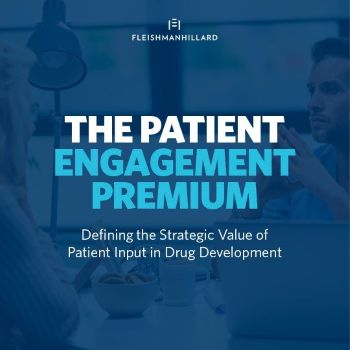London Tech Week: Four key takeaways from ‘Createch 2018’
In the second edition of this London Tech Week mini-series, Ben Rose discusses what he learnt at ‘Createch’ – a dedicated event that explored how technology is creating opportunities and challenges for people working in the creative industries.
In a world of ‘fake news’, where marketing, advertising and PR professionals are under increasing pressure to dial back the jargon and support clients with new, exciting digital bells and whistles, a blend of creativity and technology is becoming increasingly difficult to ignore.
Here, I’ve outlined the four main themes we took from the event during London Tech Week this year.
Tech is now a fundamental creative tool
Regardless of the debate and who was involved, all of the sessions pointed to one thing – tech is sitting at the heart of change in the creative industry, whether that be PR, advertising, marketing, film, design or music.
The likes of VR, AR, IoT are changing the way we take people on a journey, tell stories, and even secure business. PwC estimates there will be 16 million VR headsets in circulation by 2021, and these will be the fastest growing tech development of them all.
Jaguar hosted a session showcasing how they used VR headsets to offer virtual tours of its new IPACE electric car to potential buyers – a medium that has allowed people to experience all the details and design features, but from their own home or office.
This Jaguar demo shows that there is a huge opportunity for creatives to put data analysis, VR, AR and more digital tools at the heart of our new business pitches and client campaigns. In an era where client budgets are squeezed, and everyone at the top is looking to optimise the creative world to be profitable and ‘slick’, technology helps us refine our concepts, ideas, pitches, and content for the better.
It also signals a convergence of PR, marketing and advertising, where the lines are now truly blurred – agencies can now do it all under one roof, and the previous silos of marketing, advertising and PR are starting to dissolve.
Tech will help agencies (and clients) do better work
“Digital will only make creative work better” said Iain Dait, Executive Creative Director at ad firm Wieden & Kennedy, and I certainly agree.
Technology has created an opportunity for creativity that we’ve never had before. In fact, the variety of options available to us is actually quite overwhelming, especially when you consider emerging technologies such as AI or Virtual Reality, and how these could play a part in a comms campaign.
However, we first need to educate ourselves that it’s a force for good.
Dait continued: “There’s a mind set for people in the creative world that ‘tech is an obstacle to my instincts or my personal brand’ – it’s something that people are afraid of because they feel it somehow takes away from their creativity or value”.
But tech means that agencies can (and should) bring clients on the creative journey with them – get them involved in the creative process, show them the value it brings first-hand.
“Once a client sees the value of an exceptional social or VR campaign and what it can do for their business, they want more of it.”
The UK really wants to lead the Createch charge
Former Creative Industries Council (CIC) Chair, Nicola Mendelsholn, opened the day with a keynote outlining how the growth in the UK’s Createch industry has shown there’s clearly an appetite from government and industry bodies for more collaboration between the creative industries and technology institutions.
“The UK has one of the strongest creative industries in the world – we’re investing £150 million into it, and the likes of Tech London Advocates and the CIC are campaigning to bring down the barriers that are facing businesses and startups […] We want it to be as big as Fintech is today, and how biotech was in the 1990s.”
Nicola’s comments were later backed up by Matt Hancock, Secretary of State for Digital, Culture, Media & Sport, who pointed out that: “We’re already seeing examples of tech and creativity merging in society – sculptures built by 3D printers and art exhibits shown through VR. We now need to educate those that are still not recognising the benefits of digital”.
AI won’t take creative jobs (yet)
While many argue that our future generations need to be coders or computer programmers to secure their future, many of the day’s panel members felt that they will be just as secure in a creative role.
Sarah Golding, IPA President & CEO of ad firm The&Partnership, echoed this sentiment in a panel session: “We’ve developed some of our best campaigns through data analysis, where we needed AI to source the information. But we still need the people to develop the ideas, the creative storyboards, the scripting and so on. The tech is just a small tool to help the whole process.”
Matt Hancock also backed up this sentiment during his keynote: “Digital is great, but it’s no substitute for the brilliance of the human mind. While tech is there as a tool to help us execute our ideas, the ideas still need to come from somewhere”.
So after a full day of panels, speeches and debates, one conclusion was clear throughout – we’re now at a point in history where technology is having a profound impact on the creative industries. It’s a platform that can help creative professionals do their jobs better, and open up a whole new set of avenues for conveying stories and messages – something the PR industry will be looking to tap into I’m sure.
Ben Rose, Technology
Find Out More
-
The Patient Engagement Gap Your Competitors Are Closing
February 27, 2026


